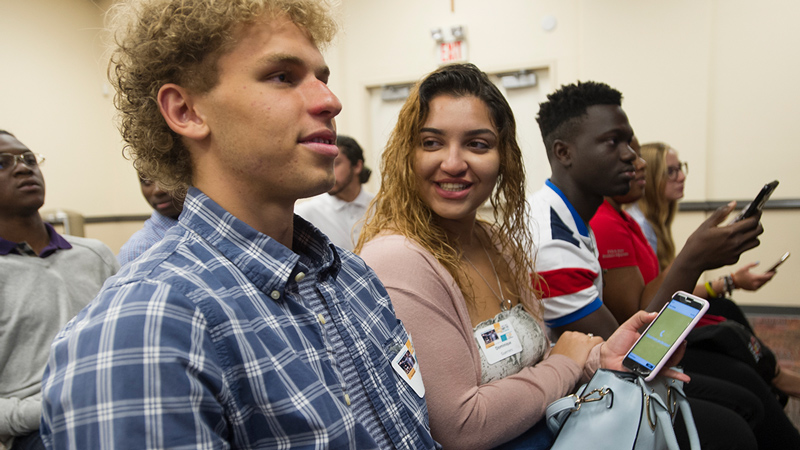Documentation of a learning disability requires a comprehensive and specialized assessment. Following are the criteria the Office of Accessibility Services (OAS) uses when evaluating the quality of an assessment report diagnosing a specific learning disability.
-
Clinical interview.
-
An assessments of aptitude (The Wechsler Adult Intelligence Scale, with subtest scores is the preferred instrument, but the Woodcock-Johnson Psycho-Educational Battery: Test of Cognitive Ability or the Stanford-Binet Intelligence Scale are also acceptable).
-
An assessment of academic achievement in reading, math, and writing (acceptable instruments include the Woodcock-Johnson Psycho-Educational Battery: Tests of Achievement with fluency measures; Stanford Test of Academic Skills (TASK); Scholastic Ability Test for Adults (SATA); Wechsler Individual Achievement Test with reading rate; and if applicable, additional supplemental tests such as the Test of Written Language-IV (TOWL-IV); Woodcock Reading Mastery Tests; or the Stanford Diagnostic Mathematics Test. The Wide Range Achievement Test is not a comprehensive measure of achievement and therefore is not suitable.
-
A statement about the student’s information processing abilities (i.e., short and long term memory, sequential memory, auditory and visual perception/processing, processing speed, executive functioning, and motor ability).
-
A clear statement about whether or not there is evidence that a learning disability exists.
-
If the data do not support the presence of a learning disability, the evaluator must state that conclusion in the report.
-
If there is a diagnosis of a specific learning disability, the formal diagnostic term must be used. Terms such as “learning difficulties,” “learning differences,” “slow reader,” or “test anxiety,” are not equivalent to a diagnosis of a learning disability.
-
-
If there is a diagnosis of a specific learning disability, please recommend accommodations based upon the applicant’s current level of functioning. The documentation should include specific recommendations for accommodations that are appropriate at the postsecondary educational setting, as well as an explanation of why each accommodation is recommended. Where possible, the evaluator should link suggested accommodations to specific academic task demands.
-
The comprehensive assessment should be from within the past five years and with adult-referenced norms. The Barry OAS acknowledges that once a person is diagnosed as having a learning disability, the disability is lifelong. However, the severity and manifestations of a learning disability may change over time. Therefore, accommodations and should be based on an assessment of the current impact of the individual’s disability on academic performance.
-
The final report must be on letterhead. Please also sign the report and provide your license number.




















